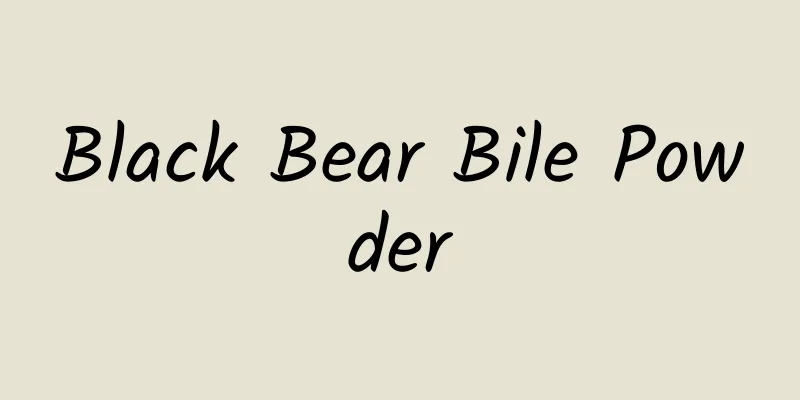The efficacy and function of Scutellaria baicalensis

|
As a traditional Chinese medicine, Scutellaria baicalensis has great medicinal value and can treat many diseases. Let’s take a closer look at it below. [Source] Medicinal material source: It is the root of Scutellaria baicalensis, a plant of the Lamiaceae family. [Original morphology] Scutellaria baicalensis, perennial herb. The stem is erect or ascending, sometimes with creeping rhizomes, 8-30cm high including the inflorescence, 1.2-2.5mm thick, rounded and prismatic, covered with white long soft hairs at nodes, and more or less lignified at the base. There are usually only 3-4 pairs of leaves, which are arranged in a rosette shape at first, and then alternately due to elongated internodes, with the middle leaves being the largest; petioles are 1-5cm long, with the middle ones being the longest, flat, and densely covered with white, long, soft hairs with nodes; leaf blades are hard and papery, elliptical or broadly ovate-elliptical, 4.5-5.5cm long, 3.8-4.5cm wide, with lower leaves and leaves near inflorescences becoming smaller, with rounded or obtuse ends of rows, cordate or rounded bases, with shallow wavy crenates on the edges, green above, lighter below, with orange glandular dots, and both sides covered with white, strigosus hairs with nodes, especially along the veins below, with about 4 pairs of lateral veins, not obvious above, prominent below, and reticular inside the leaf margin. Flowers are opposite, arranged in a dorsal-ventral raceme on the top of the stem, 7-15cm long, scape-shaped, with the axis of the inflorescence covered with long villous nodes, and the pedicel 1-4.5cm long; the pedicel is about 2mm long, with long villous nodes; the bracts are small, ovate, gradually narrowing towards the top of the inflorescence, about 2.5mm long, densely covered with short soft hairs; the corolla is light purple to blue, 1.8-2.5cm long, knee-shaped at the base, gradually widening upwards, with a throat width of up to 6mm, sparsely pubescent on the outside, and only the lower lip and the rear of the middle part of the corolla tube are pubescent on the inside, and the rest are glabrous, the corolla is bilipped, the upper lip is helmet-shaped, slightly concave at the apex, the middle lobe of the lower lip is semicircular, and the lobes on both sides are ovate; there are 4 stamens, didyna; the filaments are slender, flat, and ciliated below the middle; the disk is hypertrophic and thick, inclined, and the front is raised obliquely upward; the ovarian stalk is long or not very obvious, the style is slender, glabrous, and the ovary is smooth. Flowering period is from March to May. [Habitat distribution] Ecological environment: grows under forests, in bushes or in the wilderness. 【Nature and flavor】 Bitter; cold 【Meridian】 Lung; Large Intestine 【Functions and indications】 Clears the lungs and relieves cough; dries dampness and stops dysentery. Mainly used for lung heat cough; hemoptysis and damp-heat; diarrhea and dysentery [Usage and Dosage] For oral use: decocted in water, 9-15g. 【Excerpt】 Chinese Materia Medica Regarding the Scutellaria baicalensis introduced in the article, I hope everyone can learn more about the relevant information in daily life, so that they can correctly treat the disease when facing it. |
<<: The efficacy and function of bird's nest
>>: The efficacy and function of coconut shell
Recommend
Band-Aid or Band-Aid? Stomach-strengthening tablets or digestion-promoting tablets? Be careful not to buy the wrong ones!
Review expert: Wang Xuejiang, professor at Capita...
What are the medicinal values of Hedyotis diffusa?
I believe everyone knows about White Snake Grass,...
Are black pepper and white pepper two different types of pepper? — How many misunderstandings do you have about pepper?
Are black pepper and white pepper two different t...
DHL: Digital Twin Report for the Logistics Industry
For centuries, people have used pictures and mode...
The efficacy and function of Sophora japonica
Sophora japonica beans are plants that are helpfu...
The efficacy and function of green cotton vine
Green cotton vine is a famous traditional commonl...
The efficacy, function and consumption method of Sichuan Cyathula
Sichuan Achyranthes bidentata is a herb with medi...
Shenzhou 16 was successfully launched! Pu Pu takes you to imagine the astronauts' departure from a first-person perspective
Long March 2F rocket takes off (Photo source: Chi...
Weather satellite: predicting wind, frost, rain and snow
Among all kinds of satellites, there are some tha...
Only one paper in 6 years! He drew a "family tree" for the Boletaceae family...
Drawing a "family tree" for the Boletac...
Suddenly blocking someone for no reason, does that mean you have a dark mentality?
Key Points ★ People with the "Dark Triad&quo...
How can two drops of water and a piece of paper generate electricity for one hour?
In the past few decades, due to the accelerated t...
The efficacy and function of Fubi root
Fubi root is a kind of traditional Chinese medici...
Chicken bone grass old hen soup recipe
As we all know, chicken bone grass is a tradition...
The efficacy and function of water beans
For many Chinese people, traditional Chinese medi...









